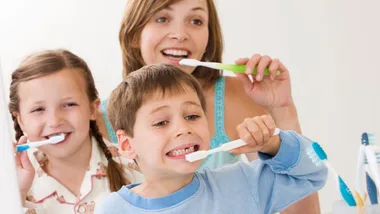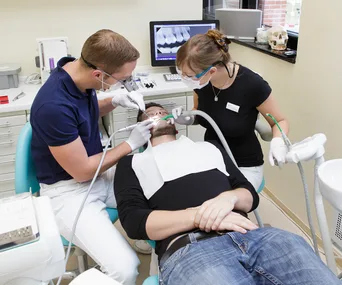Your teeth and gums need special attention during pregnancy, so it is recommended that you book in to see your oral health professional between the fourth and sixth months of your pregnancy.
Hormones produced by your body plus an increased metabolism and blood supply during pregnancy can increase the risk of dental decay and issues with gum disease so it’s important to maintain an effective oral hygiene routine.
Look after your teeth and gums
Maintain healthy oral hygiene habits by brushing morning and night with a fluoridated toothpaste, cleaning between teeth daily, eating a diet low in sugars and acidic foods and drinks, and visiting your oral health practitioner regularly.

It’s important to maintain healthy hygiene habits during pregnancy.
(Image: Getty Images)Suffering from pregnancy sickness?
Dietary cravings, morning sickness, reflux and vomiting can all have a direct impact on the bacteria in your mouth and the resilience and health of your teeth and gums.
Nausea, reflux and vomiting during pregnancy may also damage tooth enamel, increasing the risk of erosion and tooth sensitivity, due to the strong stomach acids the teeth are exposed to.
It is recommended that you avoid brushing immediately after vomiting, as this can wear away already compromised tooth enamel.
Rather, rinse your mouth thoroughly with plain tap water and then use a fluoridated mouthwash. Wait at least 30 minutes after vomiting before brushing your teeth.

Feeling sick? Avoid brushing immediately after throwing up.
(Image: Getty Images)Planning a pregnancy?
For optimal health, visit your oral health professional when you begin planning a pregnancy. This will allow plenty of time to assess and attend to your own oral health, as once you fall pregnant some dental procedures, such as x-rays, and extensive, non-urgent treatment may be delayed.
For more practical advice on good oral health habits from Oral Health Therapist, Jo Purssey, visit The Oral Health Advisory Panel (OHAP).


